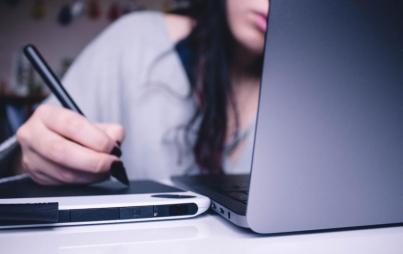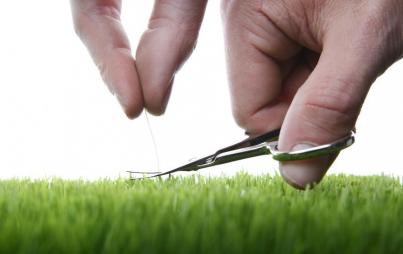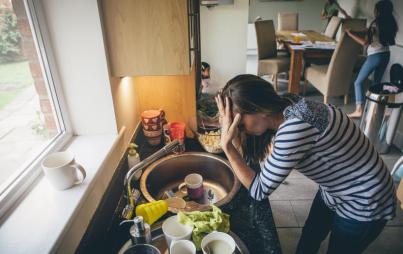
A couple years ago, I started down a path of living a more natural, eco-friendly lifestyle. Inspired by books I’d read about all the toxic chemicals we’re exposed to every day and terrified by news reports of the dire prognosis for the world, I committed to being part of the solution. I bought all my clothes secondhand or from local designers. I walked or took the bus everywhere. I stopped using shampoo. I made my own laundry detergent and deodorant. I gave up makeup for awhile. I steered even the most casual conversations toward environmental stewardship and natural alternatives to shaving cream (yeah, I don’t know how I have any friends left, either).
It was a time of challenge, personal growth, and epiphanies. It was also really, really stressful, and about six months into my lifestyle overhaul, I’d become something of a miserable homebody, muttering about the evil cycle of consumerism while mixing up another batch of DIY mildew scrub.
A little backstory here: I’ve been a perfectionist for as long as I can remember. My earliest memories of school include major freakouts about wrong answers on math tests and dramatically quitting anything at which I didn’t immediately excel. The prospect of failure has always terrified me, but it’s more than that: my definition of “failure” has always been “anything less than perfect.”
So, like my attempts at learning to play the saxophone and becoming the best speller in my second grade class, I threw myself into my eco-friendly life with everything I had. I ran myself ragged trying to be the ideal consumer. I had fleeting moments of pride at my efforts, but spent much more time and energy feeling guilty about all the ways I fell short. To meet the standards I’d set for myself, I’d probably have to renounce my place in traditional society and go live on an organic commune where we take group showers with a shared bucket of rain water and snack on compost. Which, hey — if that’s your thing, good for you. But that’s so, so not me. I started down this path to become a better human and a more conscious consumer, but I felt far from my best — to the contrary, I was cranky and judgy and exhausted.
One day, deep in my hippie phase, I was talking to a like-minded friend about how hard it is to be a perfect consumer in this day and age, and how tempted I was to quit this whole thing. “It’s not just hard to be perfect,” she said. “It’s impossible.” Whoa. She was totally right, and in that moment, four words flashed across my mind that would change the course of my life: “Be a little better.” Something about my friend stating the obvious — perfection isn’t possible — triggered this new mantra that felt inspiring and empowering and freeing. What if I let go of the losing proposition of being perfect and just tried to be a little better? Perfect was impossible. Quitting was an easy out. “Better” I could handle.
I started finding ways to be a little better instead of beating myself up for not being perfect. I kept a lot of my hippie habits (seriously love that DIY laundry detergent!) and abandoned the ones that didn’t seem worth the effort (sorry, handmade bar soap, you are way too labor-intensive). If I couldn’t find a sustainably-made underwear that I liked at local shops, I bought them 3-for-$10 at T.J. Maxx and didn’t sweat it. If I wanted a coffee at Starbucks, I’d get one, enjoy it, and be sure to recycle the cup. I found balance again. I was grateful that I’d gone to such extremes because it showed me that the middle ground was more my style, and that it’s possible to commit just to being better and still make a difference.
Since then, I’ve learned to apply this mantra to every area of my life where I’m tempted to either aim for perfection or quit — eating well, exercising, learning a new skill, responding to texts in a timely fashion — just be a little better. It’s a revelation that’s led me to become a more positive, accepting, and motivated person. And I’ve realized that’s exactly what this crazy world needs.








